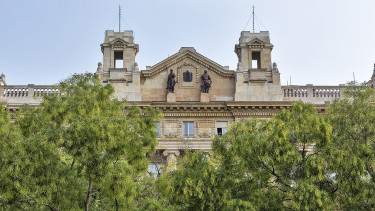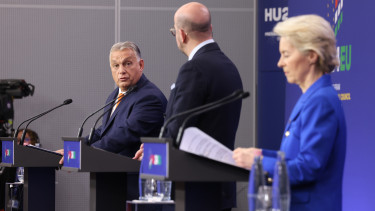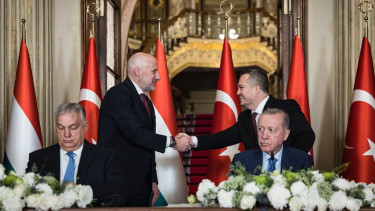Hungary to close borders from 1 September

The second wave of the outbreak has started in Europe,
Gulyás said, adding that today’s spike in new cases in Hungary also indicates that the virus is spreading faster.
“Hungary is green, all other countries are red,” Gulyás, who was briefly quarantined himself this week after contact with an infected person, replied to a question regarding Hungarians leaving the country.
With regard to border control, Hungary will return to the rules of the first wave of the outbreak: foreign citizens will not be allowed to enter Hungary without a special reason, and Hungarians returning from abroad will face a 14-day quarantine or will have to be tested negative twice.
The government will no longer pay for these tests, Gulyás said.
No lockdown planned
Hungary has tested according to WHO rules so far and will continue to do so, Gulyás said. The nearly 400,000 tests applied can not be considered a low number, he added.
Unlike in March, Hungary’s healthcare system is prepared for virus defence, so there is no need to restrict the movement of citizens,
Gulyás said, adding that the wearing of masks will be controlled tighter as the present legal framework allows for this.
Schools to begin year as normal
The Ministry for Human Capacities neither recommends nor bans large-scale opening ceremonies ahead of the new school year, Gulyás said. The aim is to keep schools open so that normal education can take place, the minister added. The government has allowed for individual schools to be closed in case there is a high number of infections.
The digital education system has performed unexpectedly well, but it is in the interest of everyone that schools operate under the regular schedule,
Gulyás said.
The current measures will remain in effect for a month, by which time the government’s national consultation will have concluded and new measures may be considered, Gulyás said regarding the re-introduction of a separate time window for the elderly to visit stores.
Super Cup to go ahead with fans in Puskás stadium
The UEFA Super Cup, scheduled to be played on 24 September in Budapest, will present a challenge, but the government plans to “bubble” the supporters of the two teams involved, Bayern München and Sevilla. Fans would be entered at the airport provided they have two negative tests, taken to the stadium, then back to the airport after the game, Gulyás said, adding that talks with the UEFA are ongoing.
Further details to follow








